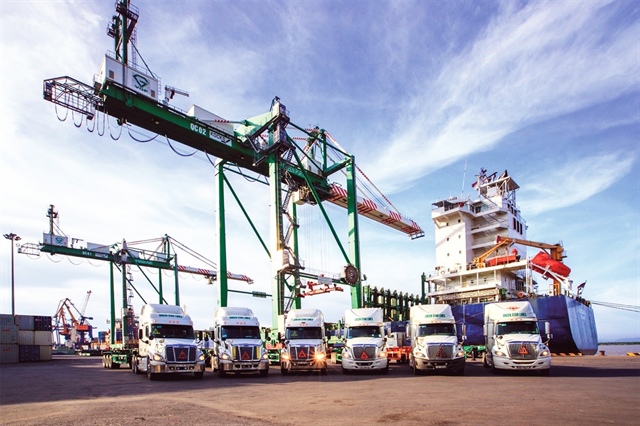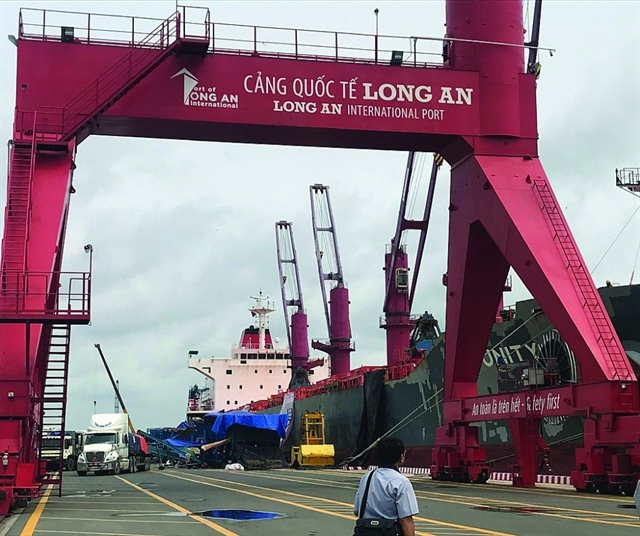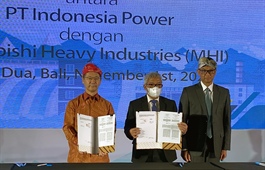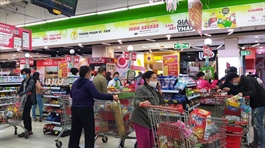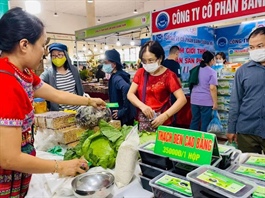Global supply chain disruptions persist
Global supply chain disruptions persist
The COVID-19 pandemic created opportunities and challenges for the global supply chain. To ensure uninterrupted trade flows, countries need to take advantage of the new opportunities to overcome the challenges facing the global supply chain.
Supply shortages
At a conference on opportunities and challenges for global value chains during the pandemic and post-pandemic economic recovery, held recently by the Ministry of Industry and Trade (MoIT), domestic and foreign experts agreed that the pandemic disrupted trade flows to many countries and greatly undermined the global value chain.
|
According to Trinh Minh Anh, head of the office at the Inter-Agency Steering Committee for International Economic Integration, regional and world economies face a huge shortage of intermediate input supplies for industries. The shock also spread rapidly and disrupted the expansion of a global supply chain that was relatively stable in recent years.
In addition to challenges, however, the experts pointed to new opportunities for the global supply chain and a new impetus to build a more flexible production network and accelerate supply chain restructuring amid rising protectionism. Nguyen Anh Duong, Director of the Department for General Economic Issues and Integration Studies (the Central Institute for Economic Management - Ministry of Planning and Investment) forecast that the global supply chain would be unlikely to return to its pre-pandemic state by the end of this year. Additional factors, such as rising inflation in many countries and the Russia-Ukraine conflict will also exert significant pressure on the global supply chain for the foreseeable future.
|
Facilitating businesses
According to Faizai Safa, a representative from the Indonesia’s Industry 4.0 Committee, the COVID-19 pandemic prevented direct distribution of many kinds of goods but enabled it through digital platforms instead. Customer consumption habits have also changed with buying behavior based more on technology. COVID-19 also led businesses to create more e-commerce platforms, enabling enterprises and workers to perform more efficiently thanks to technology platforms and digital transformation policies in many countries.
Therefore, Faizai Safa said, in order to facilitate the smooth running of the global supply chain, countries need to make appropriate policy adjustments by completing digital transformation infrastructure and promoting e-commerce to better meet increasing demand for online purchases in many countries. In particular, governments need to adopt plans to reduce logistics costs, facilitate the circulation of goods and increase the competitiveness of enterprises, Safa said.
Sharing the same opinion, Luciano Cuervo, senior economic adviser at the Global Supply Chains Division of Chile’s Undersecretariat for International Economic Relations, said that to reduce risks to the global value chain, governments need to reduce tariff and non-tariff barriers, which will promote trade and make it easier for businesses to find new markets.
According to Jason Bernstein, Director of Global Affairs at the American Chemistry Council, in addition to tariff barriers, border management needs to be improved to facilitate trade, as many countries around the world are requiring excessive paperwork at the borders, which take time and erode goods circulation efficiency, affecting trade flows and the global supply chain.
| To reduce risks for the global value chain, governments need plans to reduce logistics costs, facilitate goods circulation and increase business competitiveness. |


